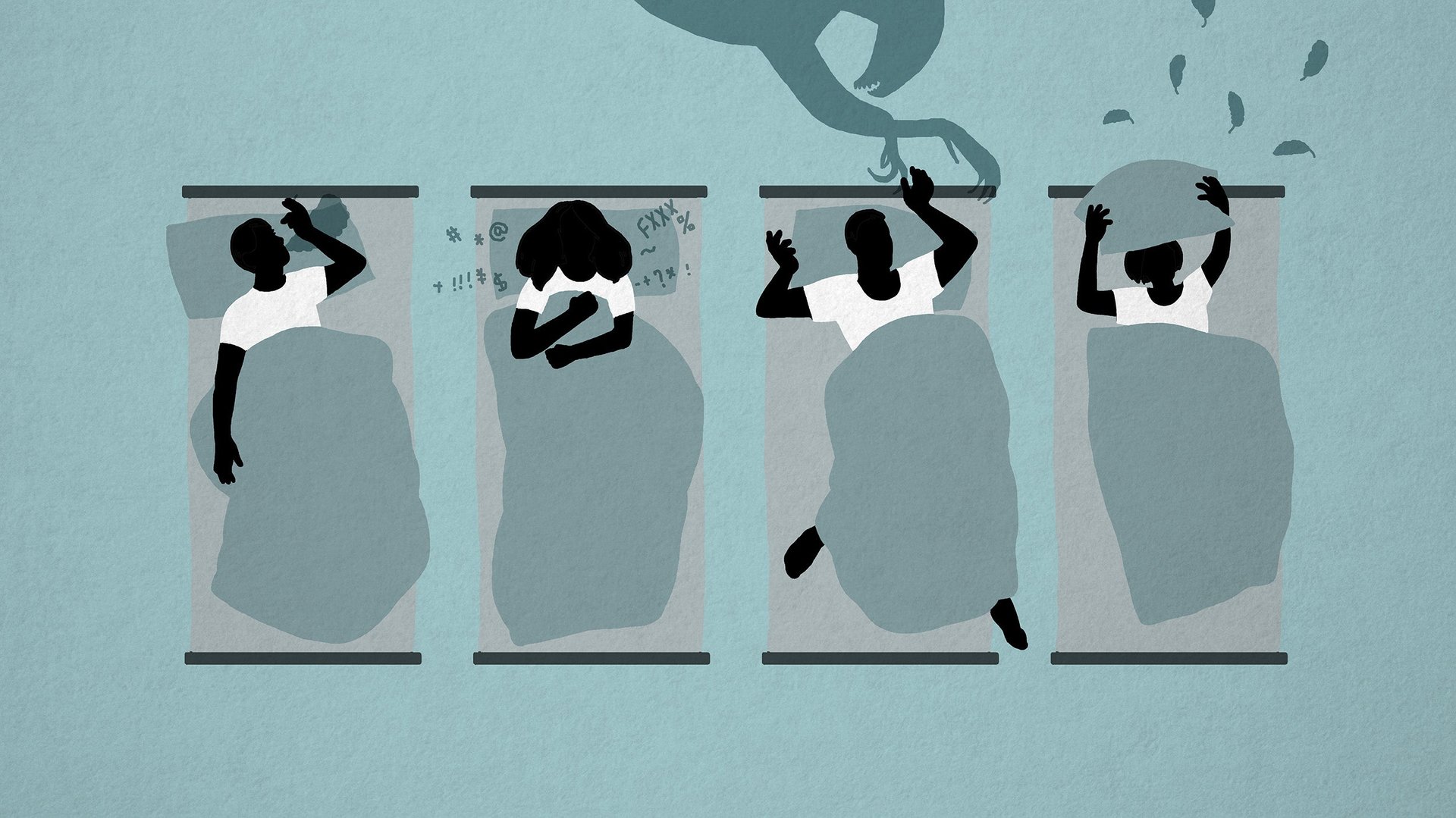If you think you aren’t dreaming at night, you’re probably wrong
Each night you might have six different dreams, but how many do you actually remember?


Each night you might have six different dreams, but how many do you actually remember?
Most of us only recall up to three dreams a week while others claim they don’t dream at all. Since we can’t see people’s dreams, there’s been no way to refute those claims. But new evidence suggests that everyone dreams.
In her work at the Pitié-Salpêtrière University Hospital in Paris, Isabelle Arnulf examined an REM sleep behavior disorder (RBD)—where people in REM sleep act out their dreams (pdf), to help identify if there really are non-dreamers.
During REM sleep, the body is typically paralyzed, which allows us to experience a dream without acting it out. But in RBD sufferers, the part of the brain (locus subcaeruleus) that controls sleep paralysis, doesn’t work properly (and deteriorates with age).
Since the condition was discovered in 1986, sleeping patients with RBD have been found to reach out, grab, flail their arms, slap, speak, yell, swear, punch, kick, sit up, and leap from bed.
Arnulf thought she could study RBD patients who claim they never dream and have physical proof to dispute their claims. Over the last 10 years, she and her colleagues managed to find 300 patients with RBD: eight of whom had no dream recall in at least the last 10 years, including four who claimed to have never dreamt at all.
For the experiment, Arnulf recruited these eight patients, and a control group of 17 other RBD sufferers, to undergo video monitoring of their sleep and then answer questions about their dreams. They also performed a memory task to see if poor memory contributed to the lack of recalling dreams.
The results, published in the Journal of Sleep Research, indicate that all these people entered a dream state. Because we don’t have more sophisticated ways of testing dreams yet, Arnulf believes this is the best evidence so far to suggest that dreaming may indeed be a universal activity.
“If you compare the two groups, it’s clear that everyone was dreaming,” Arnulf told Quartz. “However, those eight patients didn’t recall what they were dreaming.”
One of the test RBD patients who had quit smoking was caught on camera enjoying a fictional smoke. Another sat right up in his bed, started shouting profanities, and even threw things from the side table. But no amount of probing helped them remember if they had experienced dreams.
All patients in the study showed some physical activity—jerks, moving arms, singing, fighting and such—during REM sleep. When they woke up or were awoken, a few of the 17 patients in the control group remembered some of their dreams. One patient is seen in the video using his pillow to fight something. When he woke up, he remembered that he was indeed fighting pterodactyls in the dream.
The sample size of the experiment is tiny, because people who would be eligible for the study are rare. By one conservative estimate, a mere 0.38% of people consistently claim to never experience dreams. Arnulf needed to find RBD sufferers in that population, which itself is a rare condition (about 0.5% of the population has it).
Yet, it’s possible that such a study cannot catch genuine non-dreamers. If some RBD sufferers don’t have dreams, then they won’t act them out. And if they don’t act them out, we wouldn’t know they have RBD and thus won’t be able to find a genuine non-dreamer.
If someone has a “dream” but doesn’t recall it, then perhaps that “dream” doesn’t exist. Until we invent a dream decoder, we may never know.